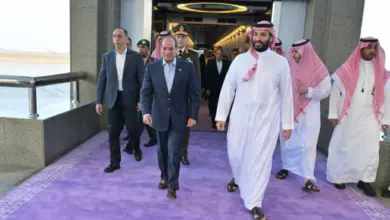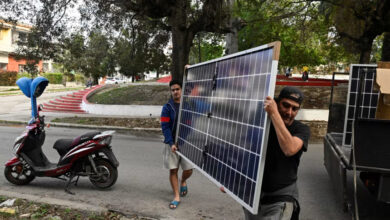US Secretary of State Rex Tillerson has announced an agreement with Qatar targeting the financing of extremist groups. Tillerson, who is in the Middle East in an effort to help resolve Qatar’s diplomatic crisis with Saudi Arabia, the United Arab Emirates, Bahrain and Egypt, said on Tuesday the Doha government had been “reasonable” in the ongoing dispute.
The US Secretary of State said that the agreement had been a year in the making, and that similar deals could be signed with the other Arab countries as a step toward ending the diplomatic standoff.
“The memorandum lays out a series of steps the two countries will take over the coming months and years to interrupt and disable terror financing flows and intensify counter-terrorism activities globally,” Tillerson told a joint press conference in Doha with Qatari Foreign Minister Sheikh Mohammed bin Abdulrahman Al-Thani.
The chief US diplomat said the new agreement was built on decisions made at a Riyadh summit in May to “wipe terrorism from the face of the Earth,” and was unconnected to the crisis.
But despite both Washington and Doha hailing the deal, Qatar’s four Arab neighbors described it as “insufficient” and warned that commitments made by Qatari authorities “cannot be trusted.”
A joint statement carried by the Saudi state news agency SPA said the four states would “carefully monitor the seriousness of Qatari authorities in combating all forms of financing, supporting and harboring terrorism.”
On June 5, the four Arab states cut diplomatic and economic ties with Qatar, accusing it of funding extremism and of being too close to regional foe Iran.
They subsequently gave the Doha government a deadline to meet 13 demands, which included downgrading ties with Tehran, the closure of the news broadcaster Al-Jazeera and the shutting of a Turkish base on Qatari soil.
The four neighbors also placed 59 figures and 12 groups with alleged links to Qatar on terrorism lists.
Qatar rejected the accusations and refused to meet the demands, which led to subsequent threats of additional punitive measures.
On Tuesday, the four states insisted their sanctions would continue until Doha “commits to comprehensively implement the just demands, including confronting terrorism and establishing stability and security in the region.”
The spat has been made worse by the leaking of accords signed in 2013/4 by Saudi Arabia, Qatar and Kuwait – and later Bahrain and the UAE – which stipulated a block on support for any opposition and hostile groups in the region.
Tillerson will meet foreign ministers from Qatar’s neighbors on Wednesday in Jeddah as part of a push by Washington to end the month-long crisis.




